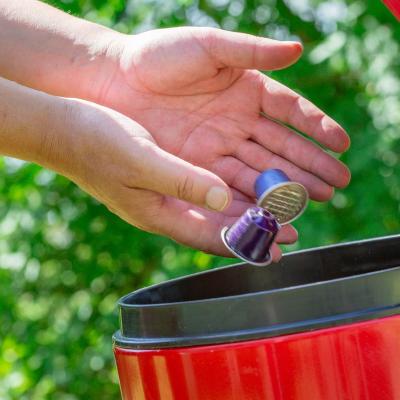
Single-use consumption of your favourite coffee pod, TV dinner tray and the conventional thin plastic bag have the potential to be highly desirable, recyclable items by today’s manufacturing industry. But is there a way to protect the environment while also preserving the disposable economy? A revolving-door alternative may prove more sustainable in the long run.
Some of the most common sectors for plastic production include bottling, construction, transportation, medicine, electronics and farming; among others. Virtually all fields of human technological development have in one way or another been influenced by the versatility of this ubiquitous material. Plastic is without a doubt the most consumed product or by-product of large-scale industrial companies.
According to the Canadian Plastics Industry Association (CPIA), a 2018 study conducted by More Recycling concluded that year-over-year, the vast majority of material collected for recycling in Canada has stayed in Canada for reclamation and remanufacture. Support of sustainability and recycling goals in Canada has led to domestic markets for most plastic scrap types and a low dependence on the export market. In a circular or close-loop economy, plastic recycling makes sense since it prolongs the lifecycle on multi-purpose products.
Last May, the Quebec Government released the first Canadian scientific study of plastic shopping bags and the associated economic impact. The life cycle analysis (LCA) assesses the environmental and economic consequences associated with every stage of a product’s life from raw form, extraction, manufacturing, usage and end-of-life management. Scientists determined the conventional, thin plastic shopping bag is not a single-use bag because it has a very high reuse rate at 77%. The most common reuse is to manage household waste. Even more controversial is the LCA researchers’ assessment that a ban on a thin 17-micron plastic bag will lead to the use of even more plastic and the manufacture of heavier types of bags, which are not easily recyclable.
Are we burying our own money every time we send plastics to the landfill? Tarsus Mexico’s Director, José Navarro, posed this intriguing question while addressing his company’s stakeholders at Plastimagen 2019. Plastimagen, which is currently the largest and leading event of the plastic industry in Latin America, has as its mission to feature the latest trends and technologies for industry professionals. Some of the targeted sectors include manufacturing, energy and hydrocarbons, forestry, environment, water, smart mobility, and of course the plastic industry.
SustainAbility Analyst Nicola Ledsham echoes Navarro’s worries by proposing that every industry should have a business strategy to manage plastic. Representing her global advisory firm, one of Ledsham’s key suggestions includes a collaboration to innovate, “Collaboration between resin suppliers, packaging manufacturers, brands, waste contractors and recyclers is the only way to build a circular economy with benefits throughout society,” she says. Through reducing, recycling and reusing, (the big 3-Rs of the industry) along with scientific research and collaborative opportunities between manufacturers and consumers, plastic’s ubiquity may be positively managed to create an innocuous environment and a more sustainable future.
https://www.plastics.ca/?f=Recycling/2016_PostConsumerPlasticRecyclingInCanada.pdf&n=2016_PostConsumerPlasticRecyclingInCanada.pdf
https://www.newswire.ca/news-releases/the-science-is-clear-the-conventional-plastic-bag-is-the-best-for-the-environment-682165391.html
https://www.npr.org/sections/money/2019/04/09/711181385/are-plastic-bag-bans-garbage
https://plastimagen.com.mx/2020/es
https://plastics.americanchemistry.com/Plastics-and-Sustainability.pdf
https://centro-documentacion-europea-ufv.eu/878-economia-circular/

